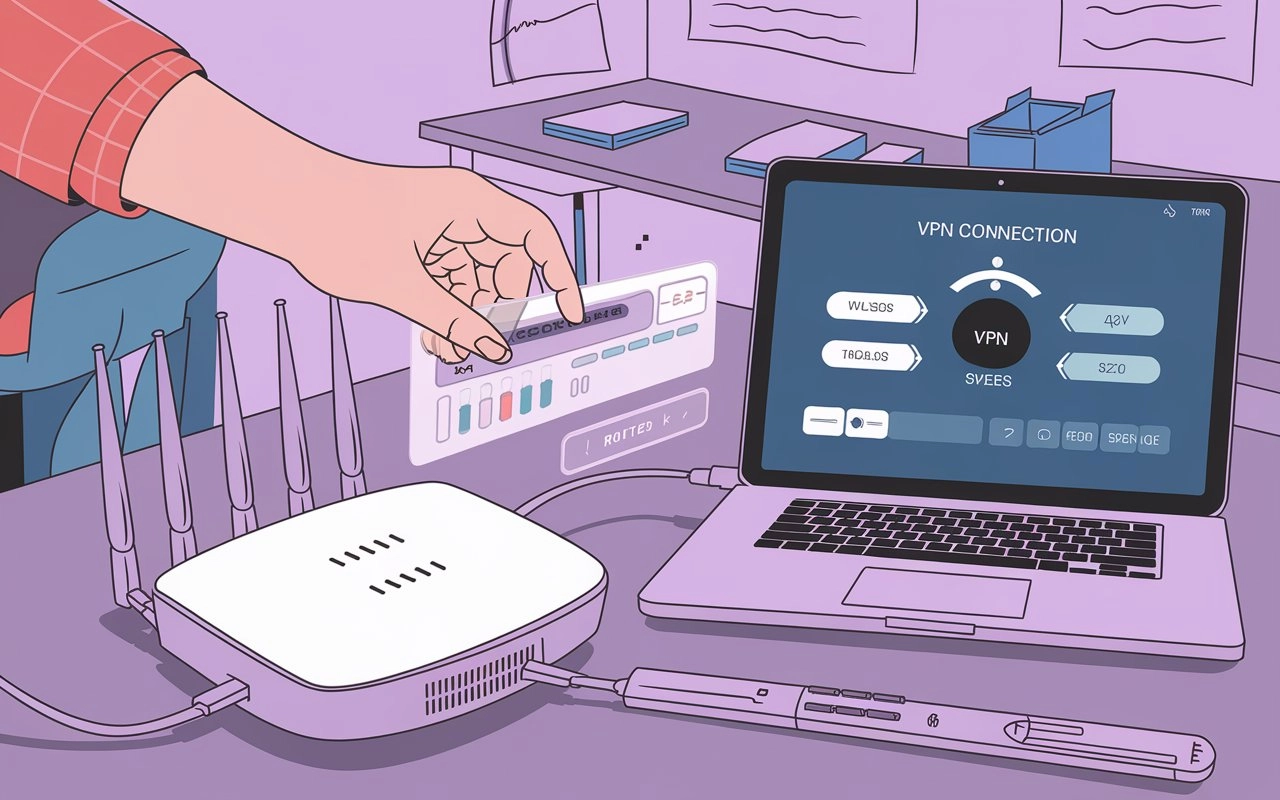How to Connect a VPN to a Router: A Clear Guide

These days, online security is a priority for many. One way to protect your data is to use a VPN. But setting it up on each device separately is inconvenient and time-consuming. Installing a VPN at the Internet entry point to your apartment or house - the router - comes to the rescue.
Why install a VPN on a router and what devices are best suited for this?
Connecting VPN to a router gives many advantages:
- All devices are protected. When you set up a VPN on a router, all devices connected to your home network receive a secure connection. This applies not only to your phones, tablets and computers, but also to any other devices connected to Wi-Fi: smart TVs, game consoles, smart home devices and other gadgets. So you don't have to worry about any of your devices being left unprotected.
- Constant security. By setting up a VPN on your router, you get continuous protection for all of your devices. You no longer have to turn on VPN on each device every time you go online. Protection is always active, ensuring constant anonymity and security. This is especially convenient for devices that are difficult to set up to use VPN, such as smart TVs or game consoles.
- Time saving. Setting up a VPN on each device individually can take a lot of time, especially if you have a large family and a lot of equipment. By setting up a VPN on your router, you only have to do it once. After that, all new devices that you connect to your network automatically receive a secure connection. This greatly simplifies the process and saves you time.
Not every router is suitable for installing a VPN. When choosing, it is important to consider the following points:
- VPN compatibility. Make sure that the router supports the required VPN protocols, such as PPTP, L2TP or OpenVPN. This is necessary so that the router can establish a secure connection to the VPN server. Most modern routers support these protocols, but it is better to check the device specifications before buying.
- Power. VPN encryption requires some computing resources, and not every router can handle this task without losing Internet speed. The router must be powerful enough to process encrypted data. Look for models with a powerful processor and enough RAM to ensure smooth network operation.
- Ease of setup. Some routers have user-friendly interfaces for setting up VPN, which greatly simplifies the process. Pay attention to the presence of built-in functions for working with VPN and user reviews about how easy it is to set up VPN on a particular model. Some manufacturers provide step-by-step instructions or even video tutorials, which will also not be superfluous.
Installing VPN on a router: algorithm, possible problems and ways to solve them
Before you start installing VPN on a router, prepare the following:
- Account with a VPN provider. Subscribe to the services of a trusted provider.
- Router. Make sure that your router supports VPN and update its firmware.
- Instructions. Find VPN setup instructions from your provider.
Here are the steps to install VPN on your router. The process may vary depending on the router model and provider, but basically it's like this:
- Step 1. Go to your router control panel. Enter your router's IP-address in your browser and log in.
- Step 2. Find the VPN settings section. It's usually located under “Advanced Settings” or "Network".
- Step 3. Enter the data from your VPN provider (server addresses, login and password).
- Step 4. Save the settings and reboot the router.
- Step 5. Check the connection. Connect to the Internet through the router and check if your IP address has changed.
When setting up a VPN on a router, typical problems may arise, which can be resolved with the following tips:
- A drop in Internet speed. This may be caused by the load on the router. Try changing the server or use a more powerful router.
- Connection problems. Make sure that you entered all the data correctly and your VPN provider is working correctly.
- Blocking access to content. Some services may block VPN traffic. Try changing the server or enabling blocking bypass mode.
Connecting a VPN to a router is a great, cutting-edge way to ensure the security of all devices in your home. This solution saves time and effort while providing constant protection.
Private VPN server: enhances network security
A private VPN server provides a high level of security and privacy for Internet connections. You can buy a private VPN server on Private VPN server and connect it to your router, which will give you even more enhanced protection and control over the data passing through your network.
Also on our website you can find detailed information about the different ways to rent VPN servers and answers to popular questions FAQ. Check out this information to choose the solution that suits you best.